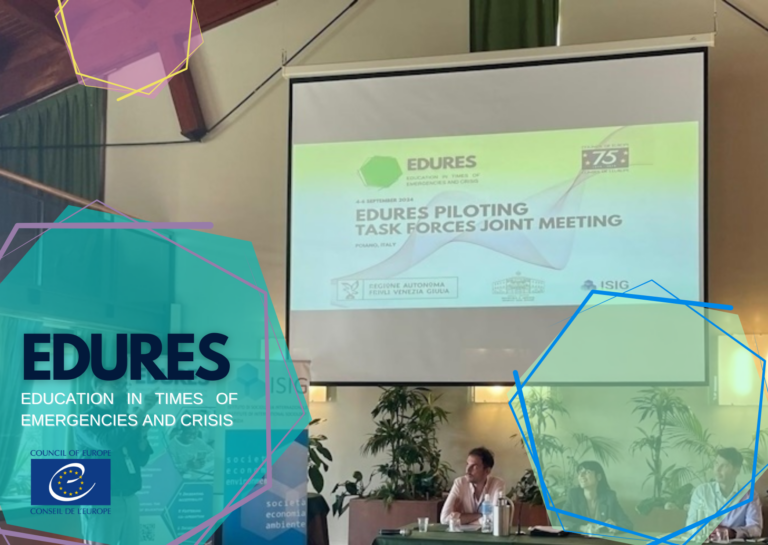The Council of Europe’s approach to education during emergencies and crises focuses on enhancing the role of education in fostering community resilience and strength. This is achieved through the application of six core principles for building resilient educational ecosystems, complemented by a toolkit that accounts for diverse contexts and crisis types.
The EDURES Working Group Meeting in Verona (4-6 September 2024) provided a platform for sharing best practices between two ongoing EDURES pilot projects in Albania (in Tirana and Durres) and Italy (in the Friuli Venezia Giulia Autonomous Region, specifically Tolmezzo and Cividale del Friuli). The meeting aimed to strengthen networks between these projects to achieve the overarching goal of ensuring quality, inclusive education during emergencies. Participants shared experiences, co-developed solutions, and adapted the toolkit to local contexts while engaging relevant stakeholders in the EDURES self-assessment and strategy development process.
Representatives from various Albanian institutions attended, including the Institution of Peoples’ Advocate, the Ministry of Education and Sport, the Agency of Quality Assurance of the Pre-University Education System, the Agency of Pre-University Education, the Albanian Red Cross, and the Municipality of Durres. Italian participants included key figures from the Education, Guidance, and Right to Study Service and the Central Directorate for Employment, Training, Education, and Family of Friuli Venezia Giulia, overseeing the pilot’s implementation.
Discussions during the meeting covered several key areas. First, the group focused on adapting the EDURES Toolkit to local needs while ensuring stakeholder engagement. Second, they explored designing participatory approaches for establishing the EDURES Resilience Task Force, emphasizing inclusive processes involving education, governance, and civil society. Friuli Venezia Giulia’s experience demonstrated that a multi-stakeholder approach enhances the implementation of EDURES and facilitates the development of URSO (Useful, Relevant, Sustainable, Owned) resilience strategies that leverage education for crisis management. Lastly, the meeting identified synergies between the pilot projects and outlined next steps for collaboration, including strengthening networks and implementing dissemination activities to raise awareness of EDURES locally, nationally, and internationally. The meeting was facilitated by the Council of Europe Secretariat from the Education Department, the CoE Office in Tirana, and experts from the Institute of International Sociology of Gorizia (ISIG).

